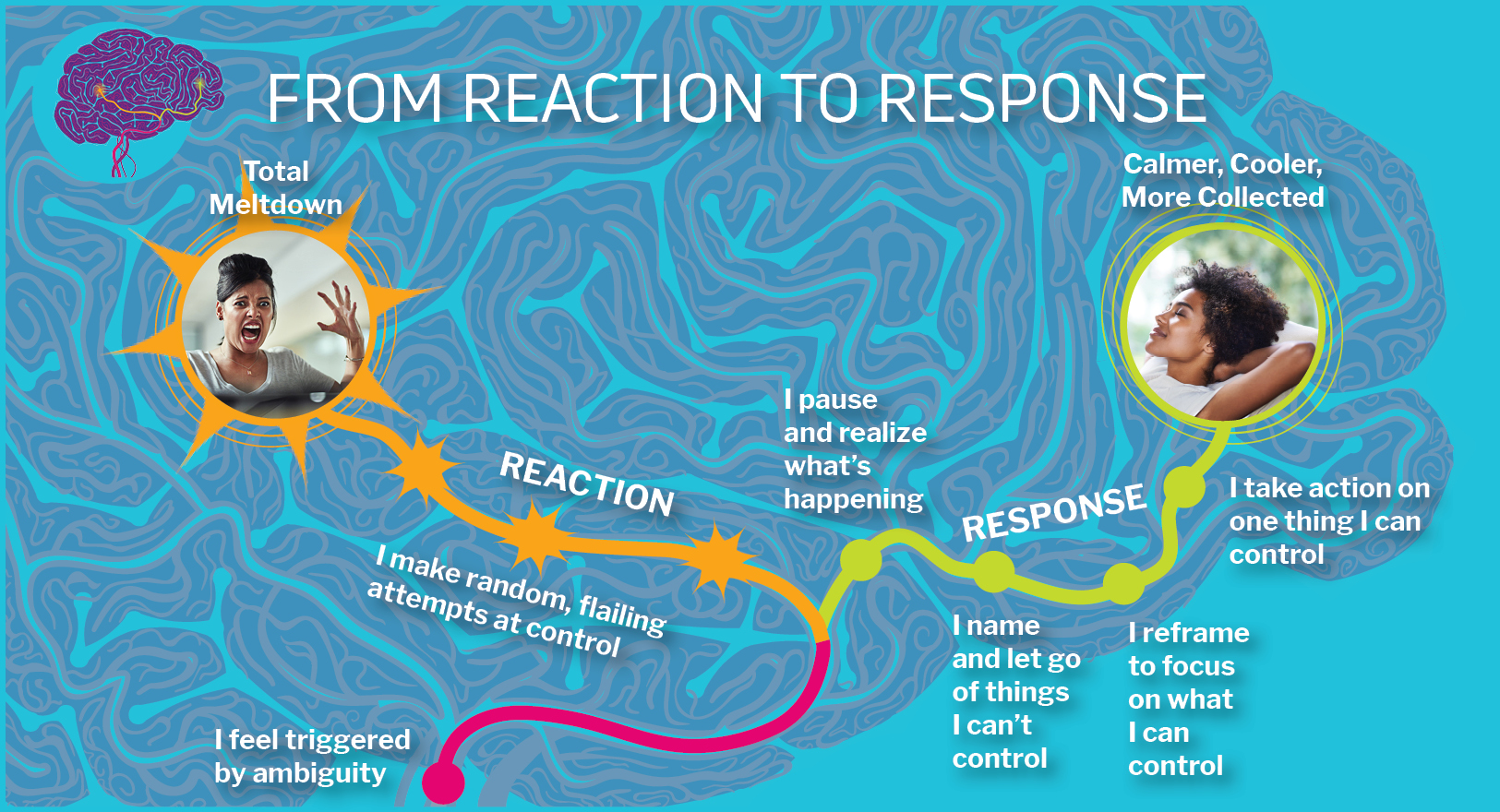“Change is the only constant in life.” I’ve heard this saying many times over the years but only recently bothered to look up who originally came up with it. I assumed it would be a modern phrase – something from a TED Talk or an HBR article. Turns out it was Heraclitus. And in my Googling, I learned that many believe that his philosophies actually informed Plato and Socrates. So, we’ve been talking about change – and how relentless and uncomfortable it can be – for a long time.
Our natural reaction to change – the instinct to panic – hasn’t changed either since the time of Heraclitus. It’s just the way our brains are wired: we see change as a threat – a threat to:
- Our desire for predictability: What’s going to happen next?
- Our sense of control: Can I do anything about it?
- Our relationships: Will I still belong here? How will I stack up?
And while our brains are consumed by these questions, we also find ourselves being stretched by change. During times of uncertainty, precisely when we are being asked to do more, process more, endure more, we have a diminished capacity to do so because of the threats we’re experiencing. That scenario probably sounds pretty familiar to you right now. I know it does to me!
Consider the request for everyone to “social distance.” There were many people who started doing some things they wouldn’t normally do – like panic buying toilet paper and holding “corona parties” – because their brains immediately saw the virus not only as a threat to their health, but also as a threat to their sense of control, predictability, and relationships. People couldn’t wrap their brains around what was going to happen if they weren’t able to go about their normal routines (a threat to our desire for predictability).
But there were some people who went down a different path – focusing on specific problems and innovating. Instead of reacting in panic, their paths looked very different:

So how can we guide others through this difficult time? By helping our teams shift from reaction mode (the freak–out train) to response mode (focusing on what we can control). To do this, we need to ask the right questions to help them reframe. Here are four questions you can use with your team:
- What’s the evidence for your thought? Do you know for certain it’s true?
- What else do you need to know or understand to take one step forward?
- Are you missing the choice in this situation because you’re only seeing it as black and white?
- How can you find the opportunity in this change?
Right now, we all have team members carrying a lot on their shoulders, and some are struggling to focus on what’s in their control. Consider your team members and what they’re dealing with, which of these questions would help them move to response mode? Leave a comment about how you are helping your team reframe and regain control so we can learn from each other.









